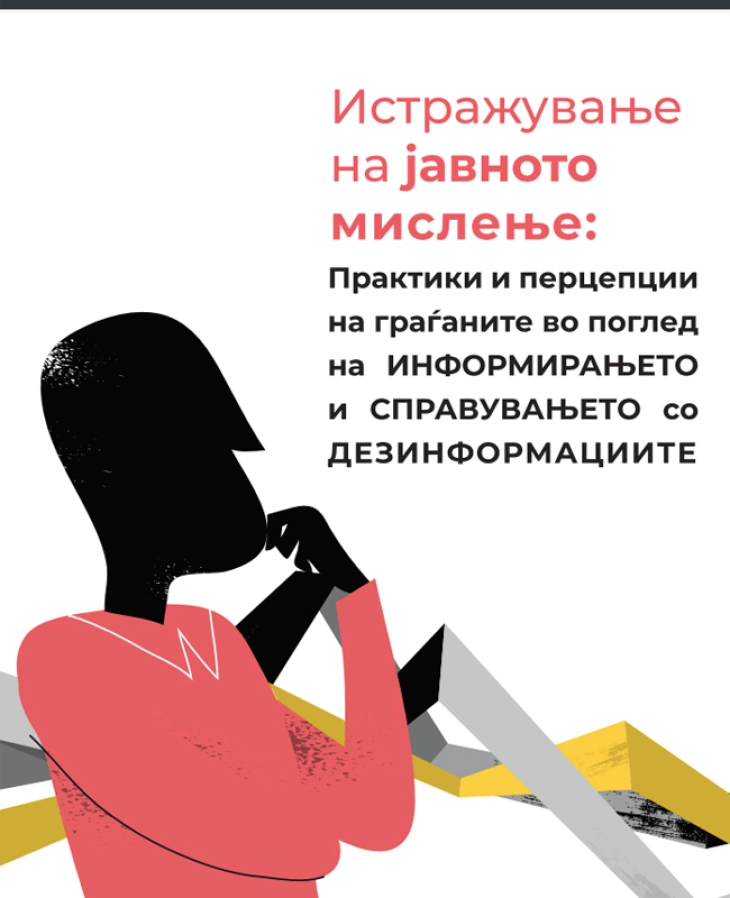Superficial information reported by media, improvised statements from institutions: opinion poll
- Seventy-one percent of the citizens say the media provide only superficial information and thirty-nine say that public institution communication is often based on improvisation rather than on facts, shows a public opinion poll of the Institute of Communication Studies (ICS), conducted in June and July.

Skopje, 17 July 2024 (MIA) – Seventy-one percent of the citizens say the media provide only superficial information and thirty-nine say that public institution communication is often based on improvisation rather than on facts, shows a public opinion poll of the Institute of Communication Studies (ICS), conducted in June and July.
The citizens primarily use information to stay informed, to make the right decisions in their private lives and to be education and secondarily for social activism and to make decisions on socially important issues, said ICS.
“The citizens are mostly interested in topics related to the economy, finances and business (37%), healthcare and health (36%), followed by domestic politics (35%), and culture and entertainment (33%). Television remains the main source of information, primarily among the senior citizens, whereas young people mainly use social media and websites. Despite the wide use of these sources of information, as many as 43 percent believe the media sometimes cover issues of their interest and only 29 percent believe they offer comprehensive analysis and in-depth information. Young people are more likely to use information for social activism compared to adults,” show the poll’s findings.
As regards trust in the media, almost half of the respondents (49%), are suspicious of the news they read and only 15% say they fully believe everything they read. Younger respondents and those aged 35-44 are particularly skeptical.
“Although there’s skepticism involving contents published by the media, one in three (31%) never check the news source and 40% never check whether the writer of a text has been signed. A majority (53%) of the respondents say they have sometimes shared misinformation and 44% believe they can sometimes recognize disinformation. Domestic politics is the field in which almost half of respondents (48%) have spotted misinformation,” said the ICS.
As regards communication with public institutions, most respondents receive information via social media (46%) and a significant percentage use also websites (42%).
“Yet, almost a third (29%) say that a small portion of information is available on the institutions’ websites and social media. Most respondents (38%) are partially satisfied with the communication with institutions on their issues of interest,” said the ICS.
The opinion poll “Practices and perceptions of the citizens as regards information and dealing with disinformation” was conducted by the Institute for Democracy “Societas Civilis” on the phone from June 15 until July 2 and includes a representative sample of 1,142 citizens, aged over 18 from all regions in the country .
The Institute conducted the public opinion poll as part of the Use Facts project, supported by the UK Embassy in Skopje.
Photo: Printscreen/Institute of Communication Studies poll







